Blog B.1: “Colorblindness is the New Racism” by Margalynne J. Armstrong and Stephanie M. Wildman
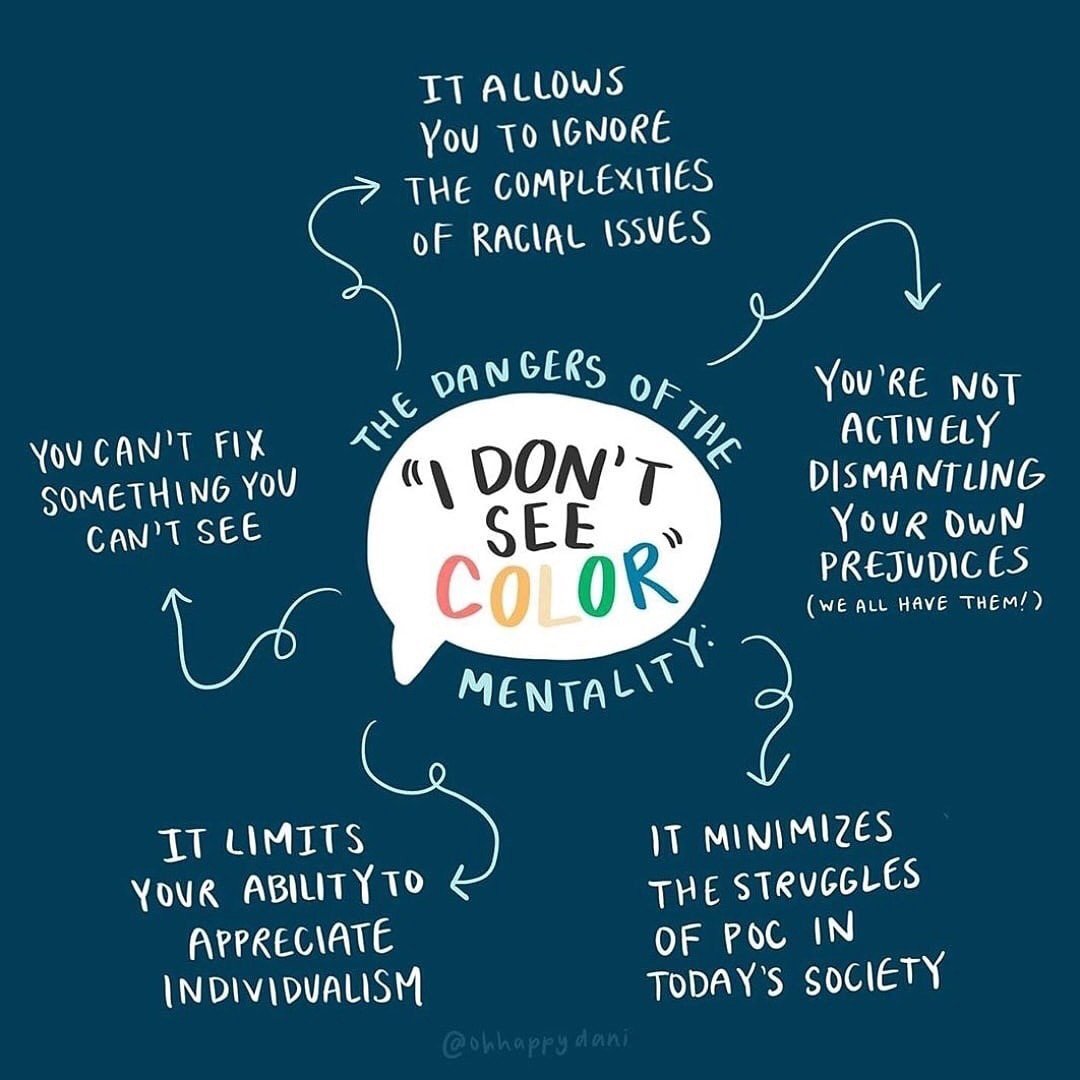
In this article the authors, Armstrong and Wildman, argue that in order for society to tackle the issues with race, we must first recognize that there are constructed races and that “colorblindness” can hinder progress in addressing racism and issues that arise from systemic racism. “Learning about race and understanding its operation in the world is a key step for all members of society and certainly for people who will practice law or serve the public in the 21st century” (Armstrong & Wildman, p. 66). Even if the intention is to be comforting or inclusive, it can have negative impacts in interactions and understanding.
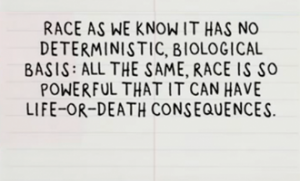
Armstrong and Wildman bring up that race is the elephant in the room, when it comes to the topic of colorblindness. This is an interesting connection to Allan Johnson’s Privilege, Power, and Difference, where he too discusses our society’s lack of wanting to talk about race as the elephant in the room. Right after their point about how the United States does not like to talk/name race and the issues surrounding it, the authors bring up Barack Obama as an example of how the U.S. sees itself in a post racial phase, “as if the election of a Black man to the nation’s highest office meant no more conversation about race was needed. This lack of dialogue perpetuates racial separation. Three years after President Obama’s inauguration, racial justice dominated the national news with stories on the killing of Trevon Martin and litigation about Arizona’s Senate Bill 1070, authorizing police to require proof of immigration status” (Armstrong & Wildman, p.66). We live in a society that sees something good happen, and feels like that is the end of the issue. One of the major issues of colorblindness is not seeing the limitations that some have and not admitting the advantages that others have. If I do not see color, I do not see the struggle. Same as if I see a successful immigrant, black person, LGBTQA+ person, woman, etc. that does not mean that that success is the norm.

One thing that was really important about this article was the fact that Armstrong and Wildman talk about the negative effects of color blindness in race. I, too, used to think that we were all one. To bring in German Lopez's article about "Black Lives Matter" and "All Lives Matter" I, too, found the Black Lives Matter movement divisive. I didn't understand that there was an implied "too" at the end of Black Lives Matter; however that all changed in 2020. Not only were we adding things like "Blue Lives Matter" to the discussion (which is a terrible thing to compare Black Lives Matter with, since a police officer can take off their badge, while a POC cannot take off their color.), but by 2020 I had started to hear black stories in a different manner, instead of just listening and denying their experiences and outrage. During the COVID pandemic I watched as news outlets repeatedly showed a black man killed on the streets in broad daylight, while debating if this citizen deserved the treatment inflicted by police. It was on video and people still couldn't understand unlawful use of force. I was outraged. How can we watch someone being killed on t.v. and still discuss the validity of the crime? 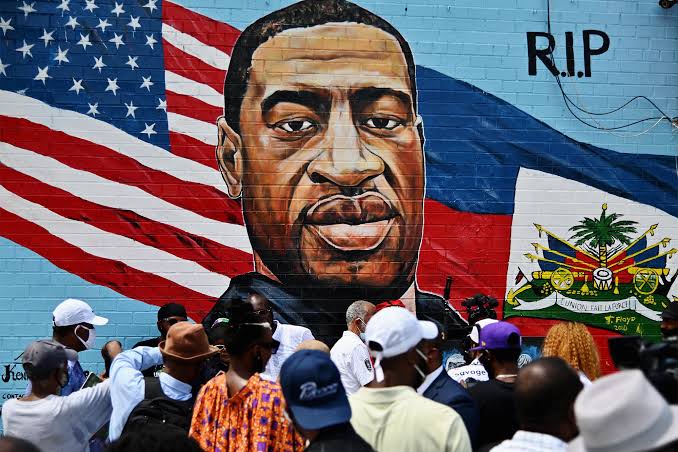 |
| George Floyd's death was recorded and published in numerous news outlets during the pandemic. His death at the hands of police started a second wave for the Black Lives Matter movement, and many went to the streets around the world to protest his unlawful and violent death. |
There is a Ted Talk by Traci Ellis, where she talks about the issues with colorblindness in a racially divided country. She poses this question at the beginning of her talk , “It sounds like just what this country needs right now. Indeed the world. To focus on our shared humanity rather than something divisive like color, doesn’t it?... or does the failure to see color form the basis of a very considerable problem in this country?” (Ellis, 1:40). She then went on to explain how racism can taint everything from the law, medicine, education, and professions. She also mentions that not even a well educated lawyer and good person like herself can be safe from racism. With colorblindness we come close to “whitewashing” every experience that those in our society have everyday. My black friends and students do not experience the world in the same way that I do or my white boyfriend. Not seeing their color, takes away from their stories and continues to perpetuate the problems. Colorblindness is another way to silence black voices and experiences.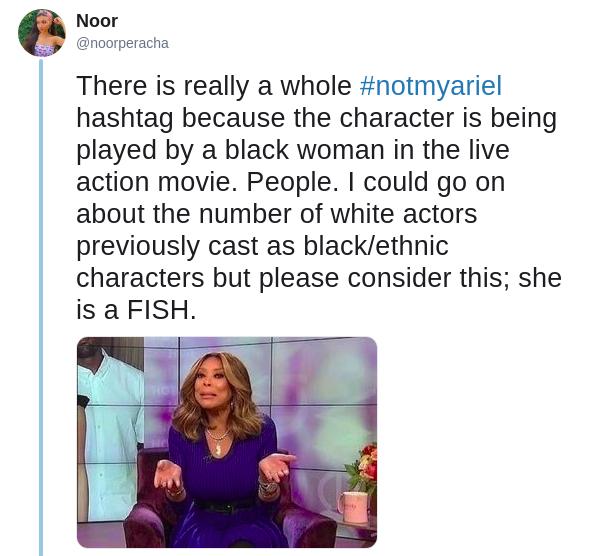 |
| No one sees color until it's a Disney princess... |
As a society it is our job to see color, and to understand how that can create privilege and disparities. As Armstrong and Wildman mention, we must learn from the experiences of others, including POC so that we have a better insight in how race plays a key role in our society, and then finding a way to dismantle these opportunities for one race verses the limitation other races deal with on a daily basis. Johnson and Delpit have both mentioned talking about race and not ignoring the elephant in the room, no matter how uncomfortable it can be.
Armstrong, M.J. & Wildman, S.M. (2013). “Colorblindness is the New Racism.”
Johnson, A. (2001). Privilege, Power, and Difference.
Lopez, G. (2016, July 11). Why you should stop saying “all lives matter,” explained in 9 different ways. Vox. https://www.vox.com/2016/7/11/12136140/black-all-lives-matter
TEDx Talks. (2018, July 6). The Exceptional Negro: Fighting to be Seen in a Colorblind World | Traci Ellis | TEDxHarperCollege [Video]. YouTube. https://www.youtube.com/watch?v=xqvZRO2LPmw




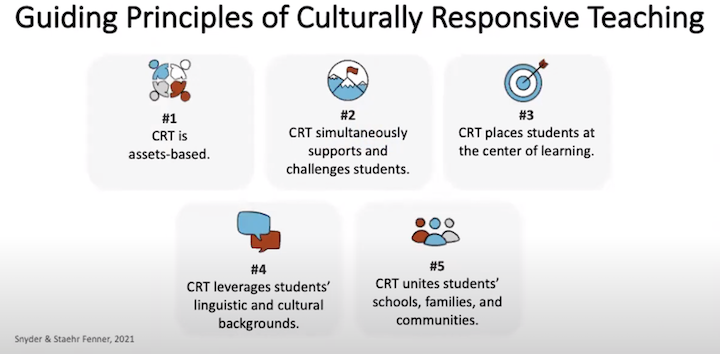
I also noticed the usage of "addressing the elephant in the room" throughout multiple sources so far this semester. I think it is important that we directly address the privilege that exists for some in our country and in turn the discrimination that is created from these advantages. Many white people in America become defensive and deny that they have privilege. This is due to them having the privilege to not even have to think about race on a regular basis. I also believe some are resistant to change society, for fear of losing the advantages that they currently have. I appreciated you inclusion of the TedTalk as it gave additional support to the argument against the term "colorblindness" and how hurtful it can be to our society.
ReplyDeleteI also enjoyed Traci Ellis's Ted talk. She does a really great job at talking about her lived experiences and the way power, privileged, and race encompasses every aspect of society. I enjoyed reading your blog post!
ReplyDeleteHey Kelly, really nice addition with the TedTalk. It definitely added a lot to your words and your contributions. I especially really liked how you brought up success and how that kind of contorts perspectives of privilege and power. I've noticed that a lot - especially with a close friend of mine who is a Black woman who is also extremely successful and happy. She told me how sometimes she "forgets" who she is until someone on the street or someone she works with "reminds" her. The way you communicated that I feel like perfectly encapsulates situations like that
ReplyDeleteKelly, one of my favorite parts of your post was the picture you chose to put right at the top. i thought it captured what is wrong with the idea of colorblindness and put it in a way that is easily understandable. it was a very helpful visual for a very complex issue. it was a very thoughtful addition to an already great blog post.
ReplyDelete